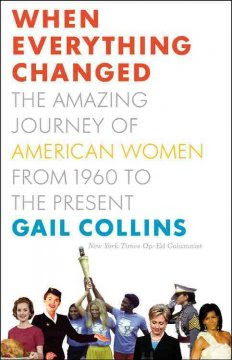
Sapphire. (1996). Push: a novel. New York : Alfred A. Knopf.
This novel is now the basis for a film.
Precious: Based on the novel "Push" by Sapphire, with Gabourey Sidibe in the title role, opens Friday in selected cities.

Gabourey Sidibe (left) and Mo'Nique (right) star in the new movie 'Precious.'
 Writing in the Wall Street Journal
Writing in the Wall Street Journal, Juan Williams, himself black, does not think highly of the movie or the book on which it is based:
The black imagination as revealed in gangster lit is centered on the world of drug dealers— "dough boys" who are heavy with drug money—and the get-rich-quick rappers and athletes who mimic the druggie lifestyle. And there are lots of "ghetto-fabulous" women, referring to themselves as bitches, carrying brand-name handbags and wearing big, gaudy jewelry. Attitude and anger are everything. The dispiriting word "nigger" is used freely by black characters talking about one another. There are guns and drive-by murders; hot sex that emphasizes the pleasure of getting it on with no strings attached; women without husbands and children without fathers; people who brag about being street-smart and then drop out of school and find themselves unemployed."Precious" is already a cultural event, then, whatever its box-office success turns out to be. The movie gives prominence to the subculture of gangster-lit novels, bringing them into the mainstream. Not only the best but the worst that can be said about these books is they are an authentic literary product of 21st-century black America. They are poorly written, poorly edited and celebrate the worst of black life.Designated
a Critic's Pick by the film reviewers of The Times.
Joe Morgenstern reviewed it well in the Journal.
One of the most telling moments of a shockingly beautiful film called "Precious" comes toward the end, and it's hardly more than a throwaway—the heroine glances at a mirror and sees herself. Until then mirrors have reflected her desperate fantasies of who she might be—a svelte blonde, a bejeweled black dancer or cover girl. That's because Claireece "Precious" Jones (Gabourey Sidibe) has found the sight of her physical self—like the plight of her spiritual self—unendurable. A 16-year-old African-American in the Harlem of 1987, she is mountainously obese, sexually and psychically abused, illiterate, almost mute and pregnant with her second child. The drama begins by giving her spirit voice—it's another notion of "A Beautiful Mind"—and follows her growth from a rageful child with a turbulent inner life to a formidable young woman with a life full of promise and hope.
The full, contractual title of the film, which was directed by Lee Daniels, is "Precious: Based on the Novel 'Push' By Sapphire." (Geoffrey Fletcher did the screen adaptation.) In addition to striking a blow for books and the written word, the title serves as a reminder that "Precious" is a work of fiction, by the African-American poet who calls herself Sapphire, and something of a fantasy in its own right—an inspirational fable about the power of kindness and caring. (The producers include Oprah Winfrey and Tyler Perry.)
View Full Image
FILM2_GOATS
Overture Films
George Clooney, below, is one of the stars of 'The Men Who Stare at Goats.'
FILM2_GOATS
FILM2_GOATS
That's not to diminish the fable's value, only to note the near-saintly devotion of an alternative-school teacher, Ms. Rain (Paula Patton), and a social worker, Ms. Weiss (Mariah Carey), and to acknowledge the time-lapse pace of the heroine's blossoming under their care. "Precious" is genuinely and irresistibly inspirational. If the filmmaking weren't so skillful and the acting weren't so consistently brilliant, you might mistake this production for a raw slice of life from a Third World country where movies can still be instruments of moral instruction and social change.
If Ms. Sidibe weren't playing the title role, it's hard to imagine what "Precious" would be. She doesn't play it, she invades and conquers it with concentrated energy and blithe humor. (Referring to the sophisticated Ms. Rain and her lesbian partner, Precious says, "They talk like a TV channel I don't watch.") And she's not the only spectacular attraction. The comedienne and actress Mo'Nique is stunningly effective as the heroine's monstrous mother, Mary, who makes a mockery of maternal instincts and comes undone in a ghastly confrontation that goes a long way toward explaining her monstrosity. This is a fine movie, and a deep one. It's about unearthing buried treasure.
 Again, for the umteenth time.
Again, for the umteenth time.












